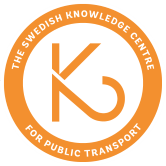Sweden's strategy to manage the spread of Covid-19 has not included any form of lockdown, in contrast to the approaches adopted by most other countries. Instead, the strategy has been largely based on strong recommendations for society. Even though Sweden has not had any form of lockdown, the Covid-19 pandemic has during a relatively short period of time brought changes for society, significantly disrupting everyday life. The pandemic poses both challenges and opportunities for sustainable future transport, not least public transport provision, supply and use. The purpose of this study is to investigate how changes for society have translated into changes for mobility as an element of everyday life during the early stages of a pandemic. This study draws on a map-based online survey (public participatory GIS) which was purposefully designed to allow people to contribute with their experiences in order to capture how the current situation has affected several different facets of people's everyday life. Results suggest that effects on mobility, such as the possibility to telework, affect different groups differently and may exacerbate existing differences in terms of gender, geography and mobility. In order to mitigate negative effects, transport policy needs to be tailored in order to take these heterogeneities into account. Both spatio-temporal adjustment and modal adjustment were dominant themes for most activities, although the dominance of these themes varied among the activities. Our findings give an indication of both the short and long-term impacts on everyday mobility in the Swedish context, for groups of inhabitants in the city of Malmö. Through deepening our understanding of the processes at play, we suggest eight possible policy responses that can be carefully tailored, both in the interim and into the future.
